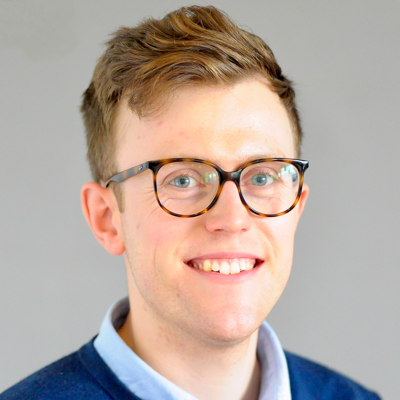CoSeC Fellow Dr Christopher Woodgate has been named as one of three winners of the 2024 Journal of Applied Physics Early Career Investigator Selection’s Best Paper Award.
His winning paper, “Competition between phase ordering and phase segregation in the TixNbMoTaW and TixVNbMoTaW refractory high-entropy alloys,” was published in the April 5, 2024 issue of the prestigious Journal of Applied Physics. The paper focused on the use of ab initio concentration wave methodology which Christopher and his co-authors have been developing in recent years, in combination with fixed-lattice Monte Carlo simulations, to study the phase stability of a family of refractory high entropy alloys, which are of interest for applications as structural materials in extreme environments.

In alignment with experimental observations, he and his co-authors found that the addition of titanium as an alloying element (to improve low-temperature ductility) induces strong atomic-scale interactions and leads to eventual decomposition into multiple competing phases. This work was conducted during Christopher’s time at the HetSys CDT at the University of Warwick, during which time he was at the Department of Physics.
Christopher is now an EPSRC Doctoral Prize Fellow in the School of Physics at the University of Bristol.A theoretical physicist and computational materials scientist who received his PhD from the University of Warwick, Dr. Woodgate moved to the School of Physics at the University of Bristol in 2024. His current focus is on modelling alloys and magnetic materials through first-principles electronic structure calculations, which he utilizes to predict material properties and better understand various phenomena in the materials’ underlying physics.
Speaking to AIP Publishing and CoSeC, Christopher said:
“It’s really wonderful to have my research recognized in this way, particularly by the Journal of Applied Physics, with its long, proud history of publishing seminal papers on applications of physics to real-world system. To me, this journal represents an important forum where the materials simulation community can connect with those working on materials experimentally. I am honored to have had my paper selected for this award.
Thanks should go to my co-author, Prof. Julie Staunton (University of Warwick) for her important contributions to this work. Congratulations are also due to the two other winners, Ymir Kalmann Frodason and Bin Zhang. I look forward to building on this success in my current position.